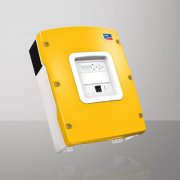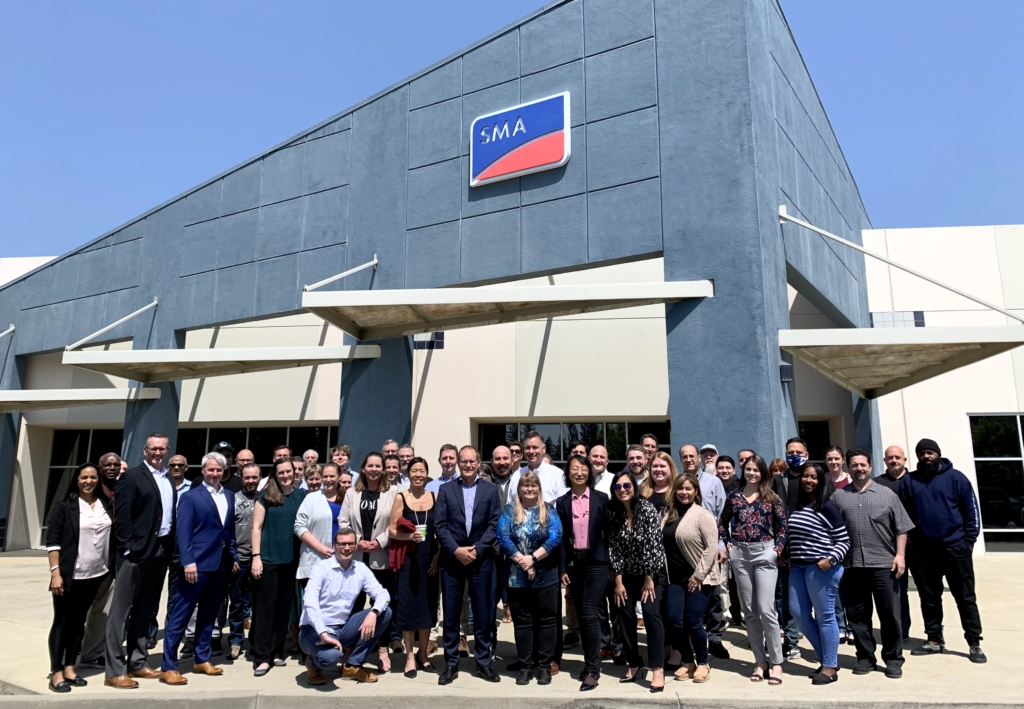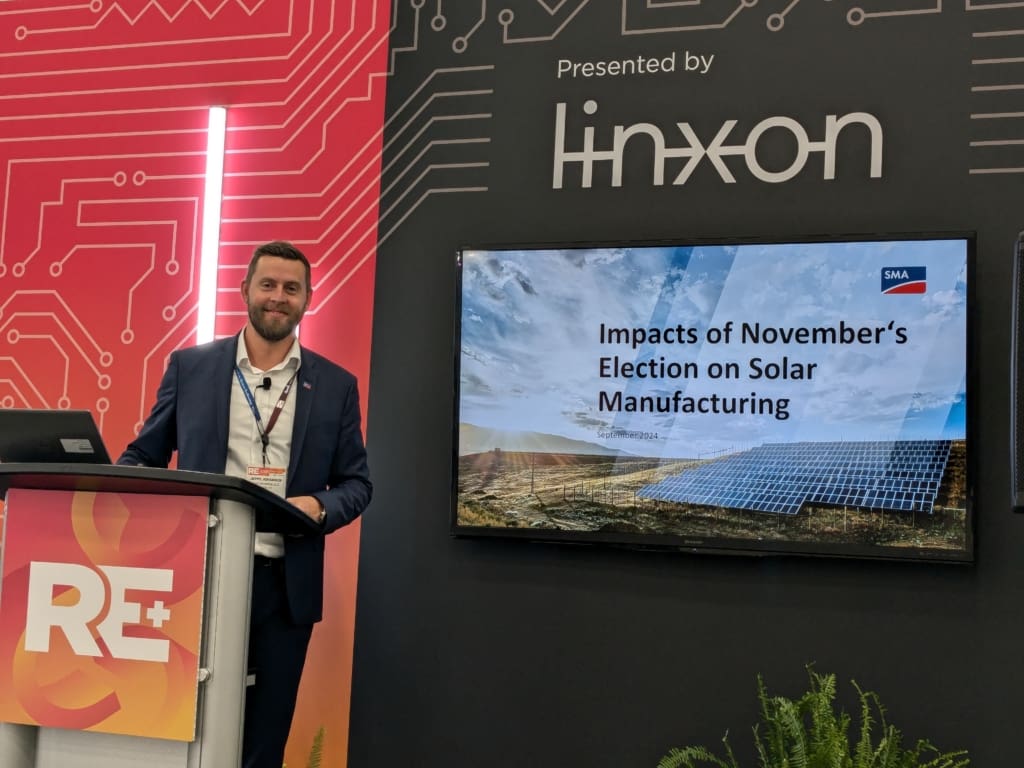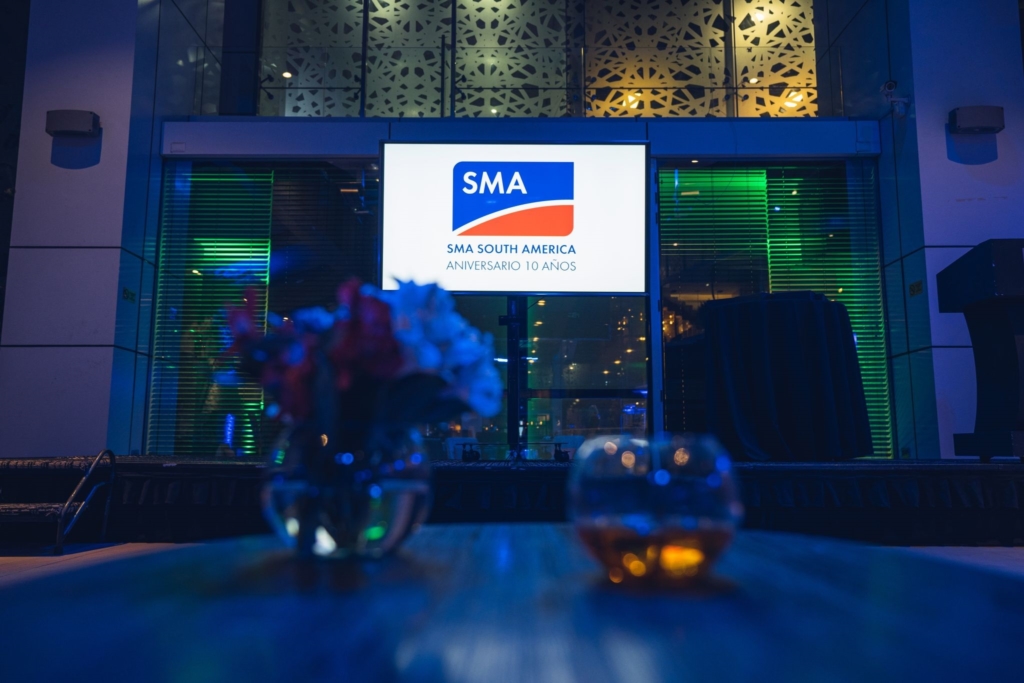Solar Power Goes Mobile

In our last post we shared one of SMA’s projects that brought solar power to a remote, developing region in Haiti. SMA has also recently supplied inverters for a unique mobile power system called SunDial SmartPower, which transports containerized solar PV systems to remote regions of the world. These systems are currently in use in developing nations without reliable grids and U.S. military sites. We interviewed the founder and president of SunDial, Daniel Rice, to learn more about his technology and how it is making a difference.
1. What first inspired you to develop mobile power systems?
As American military veterans our senior leadership knows how dangerous convoys can be for service personnel. Convoys are essential to resupply ammunition and medical supplies, but they are also used to transport fuel for diesel generators and vehicles. We started thinking of how we could reduce fuel convoys and save lives. Several of us have also worked as economic development officers, and we saw our system as a tool for development to help local populations develop.
2. How is this type of system being used worldwide?
It is being used in a variety of ways. For the U.S. military the systems are being used to provide power to troops in remote areas so that they can eliminate or reduce convoys or airdrops, which are both expensive and deadly. In other applications the systems are providing power to locals who have never had power before. In this way, it is a generational skipping technology. It is distributed power. For residents of the most remote regions of the world, their first phone will not be a landline; it will be a cell phone. Those same markets are much more likely to see their first electricity coming from an off-grid system like SunDial than from a traditional grid with massive power transmission lines going to an enormous power plant. In Africa, systems are being used by commercial companies for corporate social responsibility initiatives.
3. You recently opened a new manufacturing facility. Can you tell us more about it and what it means for the U.S. jobs market?
We have opened our new manufacturing facility in Maryland and are hoping to expand rapidly. We currently have a lead in the mobile solar market and we are exporting to several countries. We believe that this type of innovation is needed to maintain and grow our economy. Throughout the past century, technology that was first developed by and for the U.S. military has rapidly scaled into the much larger global commercial markets–such as the Internet, telecommunications, aviation, aerospace and other industries. We believe mobile solar power will be the standard to replace diesel generators globally, and we would like to maintain our leadership position and help create jobs in America within our company and through our suppliers.
4. What separates the SunDial solution from other mobile power units?
Currently we do not have any competitors that have been able to build such a resilient, reliable and large mobile solar system. There are some smaller systems that produce individual power, and those have applications, but we are the first to provide large-scale mobile renewable power for military units or camps or villages. We also have been awarded our first patent and believe we will receive many more that have already been filed, which will protect our leadership position and be valuable for expanding the mobile solar industry. Our biggest competitive substitute is a diesel generator which, in remote off-grid areas, we can beat on price and performance over the long term.
 5. What led you to choose SMA inverters for the systems?
5. What led you to choose SMA inverters for the systems?
Our team has used SMA’s products in the past and we have found that they are the highest quality inverters in the world. We plan to be in this market for many years and while we could have chosen lower cost, lower quality systems from competitors, we believe that in the long run our SunDial brand would have suffered if we did not choose the best inverters in the world for safety, performance and overall value. When you operate in the areas that we do, you need the most reliable system, and that is SMA.
6. What type of impact will mobile solar power have on the industry?
We believe it will have a transformational impact on the solar industry. “Grid parity” is difficult in some parts of the world for solar to compete without subsidies because large grids do provide long term, relatively inexpensive power. “Diesel parity,” however, has a much lower bar for solar to compete. Generators are inexpensive to purchase (low capex) but very expensive to operate (high opex), while SunDial is the opposite: It is a higher cost to acquire the system (high capex), but it can be operated with little or no fuel, depending on the load (low opex). The grid is essentially built in a high quality plant like ours and then transported and set up quickly in these environments, rather than being built on site.
7. What challenges have you faced with this project?
We have probably faced more challenges than the average startup since we have traveled and operated in Afghanistan, Yemen, Nigeria, South Sudan and about a dozen other countries where most people don’t feel comfortable traveling or doing business. Our risk profile is certainly different than the average entrepreneurs. But these are the areas that need mobile solar power the most — where fuel, and therefore power, is either very expensive, or impossible to transport, and can be deadly to transport. Most of the challenges we have faced have been from a business development standpoint in reaching the decision makers in these remote areas.. From a technical standpoint our systems have performed superbly in the most remote, austere environments in the world, which is a testament to all of our own design and manufacturing, as well as our subcomponent manufacturers — primarily SMA. We now have major global corporations and investors looking at partnerships and joint ventures and are looking to expand to many more countries in the near future.
Click here to learn more about Sunny Island off-grid inverters.
Solar Spotlight aims to highlight SMA inverters in real-world situations. Email us with information about your SMA-powered PV projects at SocialMedia@SMA-America.com






Feel free to contribute!